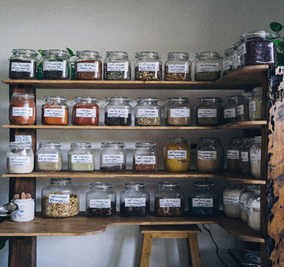- Get link
- X
- Other Apps
- Get link
- X
- Other Apps
Do you wonder how is it that you spend so
much on food items shopping? Or are you questioning your food items purchases
(if all that was purchased were necessities)?
Look no further as I also had these thoughts
and experiences.
Yes, you read right…had
but not anymore as I adhere to the following in order to save money on food
items shopping:
Pre-Shopping process
The following are the pre-shopping processes to be carried out in order to save money on food items:
·
Create a shopping list: Next is to create a Shopping list based on the
meal plan or timetable, putting into consideration seasonal food items,
inventory of food items store (pantry), and fridge (freezer) which will prevent
unnecessary and impulse buying. Also, try swapping from processed foods to whole
foods and try swapping different food items alternatives (for example swapping
meat for other types of proteins)
·
Try
Online Shopping: Armed with a shopping list, it is advisable to
browse online shops/stores to compare prices and check for discounts and bulk
sales. Purchases can be made online if the prices are favorable and are items
that cannot be found in the marketplace. It also helps to give an estimate or
budget for items to be purchased.
·
Budget:
Create
a budget for your shopping list and try as much as possible not to overshoot
the shopping list budget.
It’s Shopping time
Things
to do while Shopping in order to save money on food items purchased in no
particular order:
·
Strict adherence to a Shopping list and budget.
·
Compare prices between stores and stalls.
·
Avoid shopping on an empty stomach as you might
be tempted to buy impulsively or buy food items that you do not need.
·
Scan the store for discounted items on sale but be
careful to note the labels on the food package such as use-by-date (which indicates
when food may no longer be safe to eat) and best-before date or expiry date (which indicates the quality of the food
has started to reduce but it is still safe to eat).
·
Bulk buying food items on the shopping list
that are used frequently and or are on discount sales such as grains, canned
foods, etc. but be careful not to stock up on perishable items or items that need
to be refrigerated.
·
Switch brands by buying generic or store-branded items instead of name brand (big brand) products as they are most times
cheaper and can be good as the name brand food items.
·
Avoid pre-packaged food items that tend to be
more expensive than the food items in their original raw form (for example
shredded vegetables like shredded carrots are more expensive than the vegetable
– carrot itself).
·
When shopping it is advisable to look for
similar food items above or below shelves (looking up and down shelves) as the
stores place the most expensive food item at eye level. Also, some items can be
found at a cheaper price in a different aisle.
·
Avoid other marketing gimmicks of the stores
such as placing essential items at the end/back of the stall (back shelf), and placing fruits and vegetables at the front shelf (front of the stall)…so that you
will not feel guilty buying unhealthy choices as you walk down through the
stalls / Shelfs to the back.
Post
Shopping
Well, we are done shopping and the following are the things to do after shopping in
order to save money on food items purchased by reducing food wastage and cutting
costs in no particular order:
·
Ensure that foods are stored properly to
prolong life span and reduce wastage such as storing apples, oranges, some
fruits, and vegetables in the refrigerator while food items like potatoes, bananas,
pineapples, onions, and bread should be kept in a cool dry place in their
original packaging (if they have any).
·
Preserving food items by drying food items, and freezing some food items and food leftovers.
·
If possible grow your vegetables (consider
vegetable farming).
·
Keeping abreast with seasonal fruits and
vegetables.
·
Checking receipts to have a look at food items
bought, amount, and how much was spent.
·
Consider alternatives for food items and a healthy meal plan, also
update your meal plan.
food
in the fridge food
in the pantry
Note
that these tips save you money but the degree (percentage or amount) is
dependent on your meal plan, changes to what you eat, and how and where food items
are gotten from and or purchased that means no two persons can get the same
amount of saving as it is dependent on our choices.
If you
found this article helpful; kindly drop your comments, like, post, and share.
For
other helpful tips and articles, leave a comment below Top of Form
Top of Form
- Get link
- X
- Other Apps
I love empowering people to make healthy eating a natural and fun part of their lifestyles.
I started this Food blog in 2023 to help spread the nutrition based message which aligns with sustainable Development Goals 2 and 3, in promoting well being and creating a hunger free world.
Over the years, I have also developed essential skills and experience in content writing and SEO optimization.






